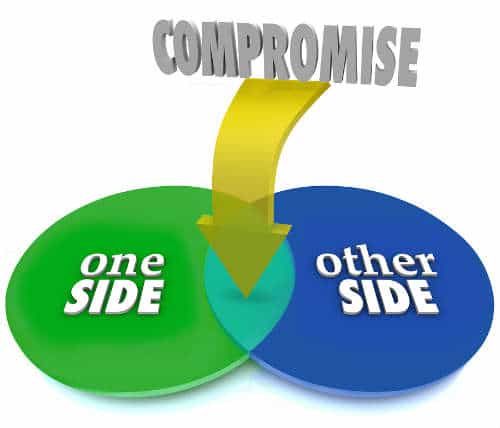Dealing with a collection agency can be stressful. You need to flex some negotiating skills in order to work with debt collectors and if you’re on a monthly payment plan, ensure that every single payment gets to them on time.
Remember that a single missed payment could change the financing agreement and you could end up paying extra fees.
Whenever possible, it’s in your best interest to negotiate a lump sum payment instead of maintaining a monthly payment schedule.
If you want to cancel an automatic payment to a collection agency, you will need to request a “stop payment” from your bank and pay the appropriate fees. Remember that the collection agency will need an explanation on why you are stopping payment, and you may need to negotiate a payment plan with them.
Here are some tips for re-negotiating the amount you are paying to a collection agency:
#1: Don’t believe that your wages are automatically going to be garnished.
Debt collectors often use this as a scare tactic to get you to pay the entire amount as quickly as possible, but the reality is, they will need to take you to court first before your wages could be garnished. If you haven’t received a court letter, it’s probably not going to happen. Don’t let the debt collector use fear to prompt a payment!
#2: Send a letter of your request.
Avoid talking on the phone as an exclusive way to confirm a negotiation. An agreement made over the phone may or may not be valid, so you will need to make sure you have everything in writing. Send a professional letter stating your intent to pay an agreed- upon/negotiated amount, and keep a copy of all correspondence as things move forward.
#3: Offer a lump sum payment for the new amount.
Some collection agencies may be willing to re-negotiate when they know that you will actually pay the proposed balance. Remember that it’s in their best interest to settle as many delinquent accounts as possible each month. If they can get you to pay and close out your account – even if it’s for less than the original balance – they will still be making a commission. If you can feasibly make a lump sum payment to clear up your account balance, make an offer they can’t refuse and follow through with the payment.
#4: Consider a counter offer.
Remember that the collection agency does have the right to refuse your offer, but they may also come back with a counter offer. Start your offer low – perhaps offering 25 cents on the dollar or so – so that you can consider a counter offer as the negotiation process continues.
#5: Request a written receipt of payment.
If you do agree upon a lump sum payment account or have successfully renegotiated the outstanding balance, make sure you have everything in writing.
Check your credit report within a few months of making the payment to make sure it’s been cleared from your credit history. Keep copies of everything that shows your balance is paid in full so that you have something to show a future lender.








